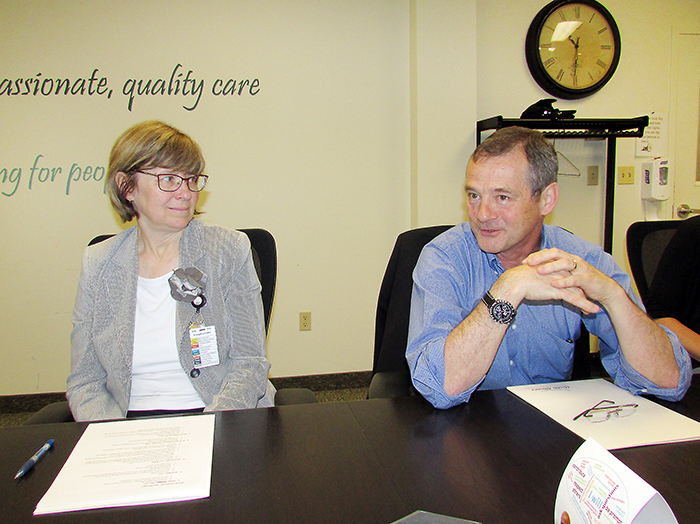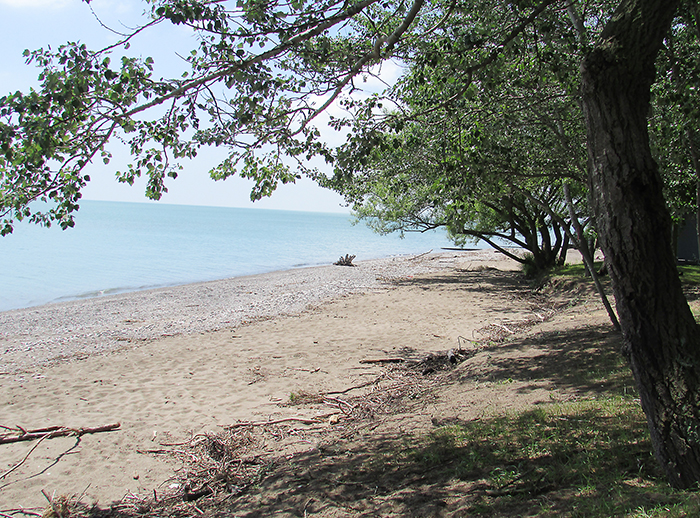
Overseers with the Chatham-Kent Health Alliance remain confident the organization is moving in the right direction.
Rob Devitt, the provincially appointed supervisor of the CKHA, said a key indicator is the recent announcement the alliance rolled back its line of credit by $2 million.
Lori Marshall, CEO and president of the alliance, said feedback from staff and patients also indicates they’re moving forward.
Devitt said the alliance’s line of credit had hit the $10 million mark under the previous regime, and it looked like things were going to get worse before they could get better for the cash-strapped CKHA. The alliance in recent years had gone from having a $4 million line of credit to $8 million, and then to $10 million as the debts mounted.
“We’ve talked about the serious cash shortfall this organization has experienced. We came within a whisker of breaking the $10 million mark,” he said. “Thanks to real teamwork, we muddled through.”
As a result, the CKHA was in a “ministry surplus” situation at the end of the 2016-17 fiscal year, Devitt said.
In the past six months, the alliance has created $1.9 million in savings.
“This is primarily due to management and physician leadership position reductions,” Devitt said. “I think it’s a really important first step. Having a balanced budget is pretty foreign here.”
The quest now is to save an additional $1.1 million.
“We need to generate money to buy new equipment and repair our facilities so we can have some wiggle room to invest and enhance our services,” he said.
In regard to feedback from users and staff, Marshall said what management is hearing is they have the right personnel in place, but there is room for improvement elsewhere.
“Areas in need of work are our fiscal recovery plan and the culture of the organization,” she said.
Marshall added there are three areas the feedback shows that need the most work: the cultivation of a respectful work environment, commitment to transparency, and the culture of accountability. All are works in progress.
In terms of the respectful work place, she said it relates to the CKHA’s code of conduct and how management and staff interact with one another and patients.
This management team has been more open with good and bad news than previous administrations, a sign of increased transparency.
“It’s something we will continue with in the future. It enhances our credibility with staff and the community,” Marshall said.
As for accountability, she said people still wonder if the alliance will slip back to the situation that led to the province bringing in Devitt in the first place – dysfunctional oversight and constant deficit positioning.
Several steps are underway to help prevent this from recurring, Marshall said, including moving senior staff back into the hospital from 47 Emma St., increasing accessibility.
As well, WeRCKHA, a program designed to engage in collaborative, open discussion around hospital initiatives, launched recently. Marshall said staff, physicians, volunteers and patient advisors will provide input on what the alliance must do to improve.
“This group will be invaluable in strategic planning, staff recognition and other areas,” she said.
As more support comes on board, there will come a time when Devitt is no longer needed. He said he hoped to be done by the end of the year.
“With Lori here, it has been terrific. I’ve been able to look at things from another 15,000 feet up,” he said of his effort to look at the large picture of how the alliance should be governed.
Devitt said he has been researching the best practices and how things work at other hospitals in southwestern Ontario.
One thing that is unlikely to happen is a return to three hospital boards answering to three different jurisdictions.
“We can’t retain three hospital boards. It’s like putting three soloists together and asking them to play as a band,” he said.
Devitt and Marshall reiterated the commitment remains for the two-site model where there will be two hospitals – in Wallaceburg and Chatham – and that means two 24/7 emergency departments, as well as a number of in-patient beds at each facility.
“We look to grow and reinvest services at both campuses,” Marshall said.
Administration said it will work with the Erie St. Clair Local Health Integration Network (LHIN) and the Ministry of Health to resubmit the CKHA master plan – which is in the process of being refreshed – to help determine what services would be offered at each facility.
Devitt said too little has been done for too long in terms of refurbishment at both campuses.
“Many years ago, the alliance did a major facilities review. The price for Chatham alone was $511 million. A project of that magnitude is unaffordable to the community and probably unaffordable to the province,” he said. “We need a thoughtful, methodical and priority-based approach. We’ll do bite-sized chunks to upgrade both facilities.”
The community will have the chance to provide input on those chunks, Devitt said.
But Marshall said a priority is the power plant – the heating, cooling, wiring, etc. – of Sydenham Campus, as it is old and inefficient.
While the two hospitals are in Wallaceburg and Chatham, Devitt stressed that the alliance is working on a system to help all citizens in the municipality. He said the rural advisory committee would help develop such a plan.






